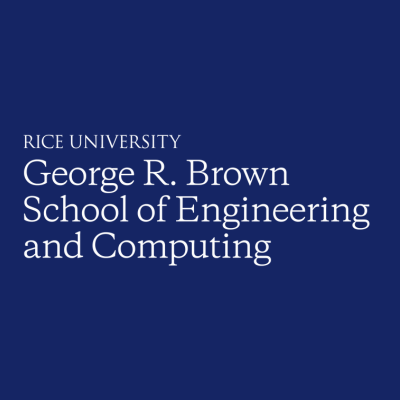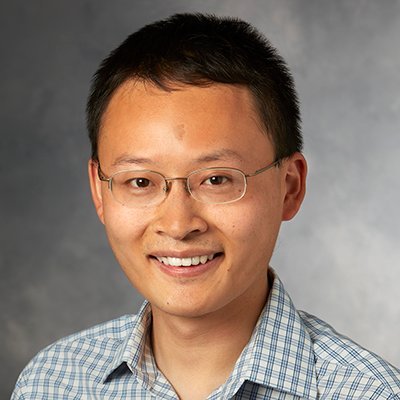
Su-In Lee
@suinleelab
Followers
3K
Following
2K
Media
29
Statuses
1K
Boeing Endowed Professor in the Allen School of Computer Science at the University of Washington; @uwcse https://t.co/TSBy7bHgCS
Joined August 2015
Three is a magic number: Professor Su-In Lee earns trio of honors, including the “Korean Nobel Prize” in engineering, for advancing AI for biomedicine
news.cs.washington.edu
For as long as she can remember, Allen School professor Su-In Lee wanted to be a scientist and professor when she grew up. Her father would sit her down at their home in Korea with a pencil and paper...
10
1
109
Congratulations to John Clarke, Michel Devoret and John Martinis on receiving the 2025 Nobel Prize in Physics! https://t.co/lWb1iMyxJC I have fond memories of my time in the Clarke lab, where I did my Honors Thesis on ultra low-field MRI w/ SQUIDs as an undergrad at UC Berkeley!
0
1
24
#RECOMB2026 is now accepting submissions and we'd love to see your best work! 📌 Abstract registration: Nov 7, 2025 📌 Full paper submission: Nov 14, 2025 📜More info:
0
6
11
🎉 Excited to share: our paper CellCLIP – Learning Perturbation Effects in Cell Painting via Text-Guided Contrastive Learning has been accepted at #NeurIPS2025! 📄 Paper: https://t.co/WuQbRp4LPj 🌐 Project page: https://t.co/S6jceXVwiP What is CellCLIP? 👇
q8888620002.github.io
High-content screening (HCS) assays based on high-throughput microscopy techniques such as Cell Painting have enabled the interrogation of cells’ morphological responses to perturbations at an...
3
1
4
📢🌟Thrilled to announce that I will be joining 🦉 @RiceUniversity @RiceECE @RiceEngineering as an Assistant Professor in Jan 2026! My group will focus on AI for Biomedicine: aging & age-related disease, foundation models & XAI. Details 👉
We are thrilled to announce the appointments of 20 new faculty who will expand our expertise in health and well-being, energy and sustainability, resilient and adaptive communities, advanced materials, and future computing. #SolvingForGreaterGood
https://t.co/DNxePZy5PO
1
10
35
Medical #AI errors “can directly impact people’s health and even determine life-altering outcomes.” In @natrevbioeng, @UW #UWAllen’s @ChanwooKim, @soham_gadgil & @suinleelab emphasized the importance of transparency in medical models. #ResearchMakesAmerica
washington.edu
In a recent paper, University of Washington researchers argue that a key standard for deploying medical AI is transparency — that is, using various methods to clarify how a medical AI system arrive...
0
4
9
Some technical delays. But we are underway! First talk by Alexis battle!
2025 Machine Learning in Computational Biology (#MLCB) meeting starts TODAY (9/10) at 9:30 (EST)! We have a great lineup of keynotes, contributed talks, and posters today and tomorrow! Schedule: https://t.co/wN8z3SeD8Y Join for free via livestream:
0
1
20
🚀 We’re at the tipping point of the AI era, and nowhere is its potential more profound than in medicine 💉🧬. But with great promise comes great responsibility. That is, ensuring transparency and safety of medical AI is crucial to its successful adoption.
1
6
15
📖 Read our full paper here: https://t.co/jr2uZTFWiM Grateful to the amazing team @soham_gadgil @suinleelab @uwcse who made this possible! Many thanks to @ChristineHorejs for positive and constructive feedback!
1
1
5
Q&A: Transparency in medical AI systems is vital, UW researchers say
washington.edu
In a recent paper, University of Washington researchers argue that a key standard for deploying medical AI is transparency — that is, using various methods to clarify how a medical AI system arrive...
0
2
6
Nothing more fun than working with brilliant students @uwcse @ChanwooKim_ & @soham_gadgil on our Nature Reviews bioengineering paper!🎉We review challenges & opportunities for making medical AI trustworthy through transparency in data, models & deployment. https://t.co/ZZBdtgixVz
0
5
16
🚀 We’re hiring! Multiple postdocs & a program manager to push the frontiers of explainable AI in cutting-edge biomedical research—Alzheimer’s, aging, cancer & medical AI. Start immediately. Friends, please RT🙏 Learn more: https://t.co/pAR8O6EKNP
#postdocjobs #AI #Biomedicine
0
15
35
Final call for posters @KeystoneSymp on #AI in molecular #biology Deadline: August 21, 2025 Beyond scientific talks, our program also includes panel discussions to address challenges + opportunities for innovation + responsibility in AI-driven biology:
keystonesymposia.org
Join us at the Keystone Symposia on AI in Molecular Biology, September 2025, in Santa Fe, with field leaders!
Interested in learning more about #AI in molecular #biology? Students can apply for a scholarship and short talk at our @KeystoneSymp this September: https://t.co/WKiPLff1Me
#KSAIBio26 Deadline June 3, 2025 Check out our speakers lineup with academic and industry leaders! 🥳🥂
0
6
19
@jengreitz & I are looking to hire a computational biologist/biostatistician with project management expertise to collaborate with our teams to map the regulatory code of the human genome and discover genetic mechanisms of disease. Details & application in next post 1/
2
12
40
🌹Meet #ROSIE, our new AI that predicts spatial multi-protein expression straight from routine H&E images. Built on a large co‑staining dataset (>1k samples, 16M+ cells). It enables cell phenotyping & tissue structure insights w/o extra assays.
6
148
693
These findings provide robust evidence supporting the importance of the built environment in directly improving health-enhancing #physicalactivity and offer potential guidance for public policy activities in this area. https://t.co/7gJEfKTdP7
0
7
25
Our work on "Evaluating the representational power of pre-trained DNA language models for regulatory genomics" led by @AmberZqt with help from @NiraliSomia & @stevenyuyy is finally published in Genome Biology! Check it out! https://t.co/AFBC9Qu4x3
genomebiology.biomedcentral.com
Background The emergence of genomic language models (gLMs) offers an unsupervised approach to learning a wide diversity of cis-regulatory patterns in the non-coding genome without requiring labels of...
Do current genomic language models (pre-trained on whole genomes) learn a foundational understanding of biology in the non-coding region of human genomes? A new evaluation led by @AmberZqt suggests not yet! 1/N paper:
1
42
124
.@suinleelab's work in explainable AI is providing a better understanding of the inner workings of deep neural networks that can be applied to new biological discoveries + insights from complex datasets 📸Mark Stone
0
1
3



















